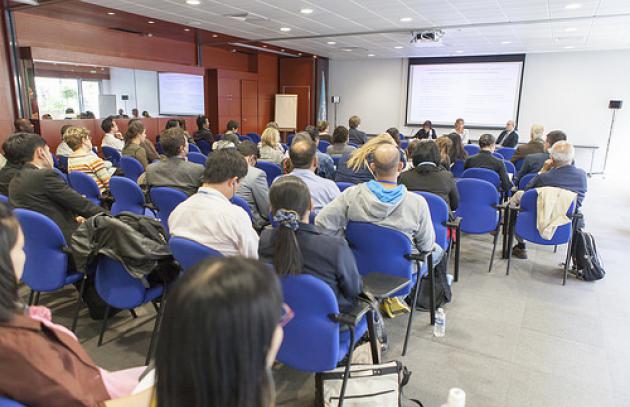news_strat_sem_6may.jpg

Leading experts in education from the International Institute for Educational Planning (IIEP) and the OECD discussed whether there is a lack of a holistic approach to educational policy, at an IIEP Strategic Debate. Participants at the debate – entitled ‘Towards a systems approach in education: What are the issues for policy?’ – noted that there is a lack of integration between targets and goals, which could be impeding progress in education worldwide. The implementation of educational policy objectives has had variable success over the past decades, particularly in the area of improving the quality of education in developing countries.
“The impact of not using the systems approach can be damaging in the long term in education,” said Gabriele Gottelmann, former IIEP Programme Specialist, during the debate. “For example, there is a focus on primary education as part of the Millennium Development Goals (MDGs), and, because of this, secondary education has been largely neglected and underfunded by donors and national governments over the past decade”.
As a joint author of an IIEP concept paper entitled ‘Strengthening of Education Systems’, Ms Gottelmann explained that countries around the world were now in need of a more sophisticated labour workforce equipped with knowledge and skills which cannot be developed at the primary school level alone, reinforcing the need for education planners at the national level, as well as donors, to fully embrace a systems approach in order to achieve results faster.
A presentation on a recent OECD review of national evaluation and assessment (E&A) systems in more than 60 countries, called ‘Synergies for Better Learning’, also noted that poorly aligned E&A systems have consequences on the teaching and learning of children.
“A systems approach to evaluation and assessment has potential for strengthening policy impact, avoiding duplications, and preventing inconsistency of objectives across policy areas,” said Paulo Santiago, Senior Analyst in the Directorate of Education at the OCED in Paris.
When asked during the debate for recommendation for donors, Ms Gottelmann said: “Both development partners and national authorities have a responsibility to build this approach into local strategies”.
Michaela Martin, Programme Specialist at IIEP, outlined some factors which contribute to a lack of a systems approach in educational policy in developing countries. “There is a lack of coordination in the ministries involved in education at the national level; development partners are sometimes concentrating on narrow education policy objectives, and there is fragmentation of information sources to support evidence-based decision-making. There is also a need for improving analytical research capacity,” she said.
Ms Gottelmann added that more research needs to be conducted at the country level to allow a deeper understanding of factors which could lead to a greater taking up of a systems approach.
IIEP is the only institute in the world providing a winning combination of training in educational planning, cutting-edge research, and in-country capacity building for educational bodies. All three components build on each other and are essential for making fundamental changes when building better education systems around the world.
IIEP believes that good educational planning is both visionary and pragmatic and offers the path to implementing education reform and transforming systems, while ensuring equal opportunities for children and youth.





